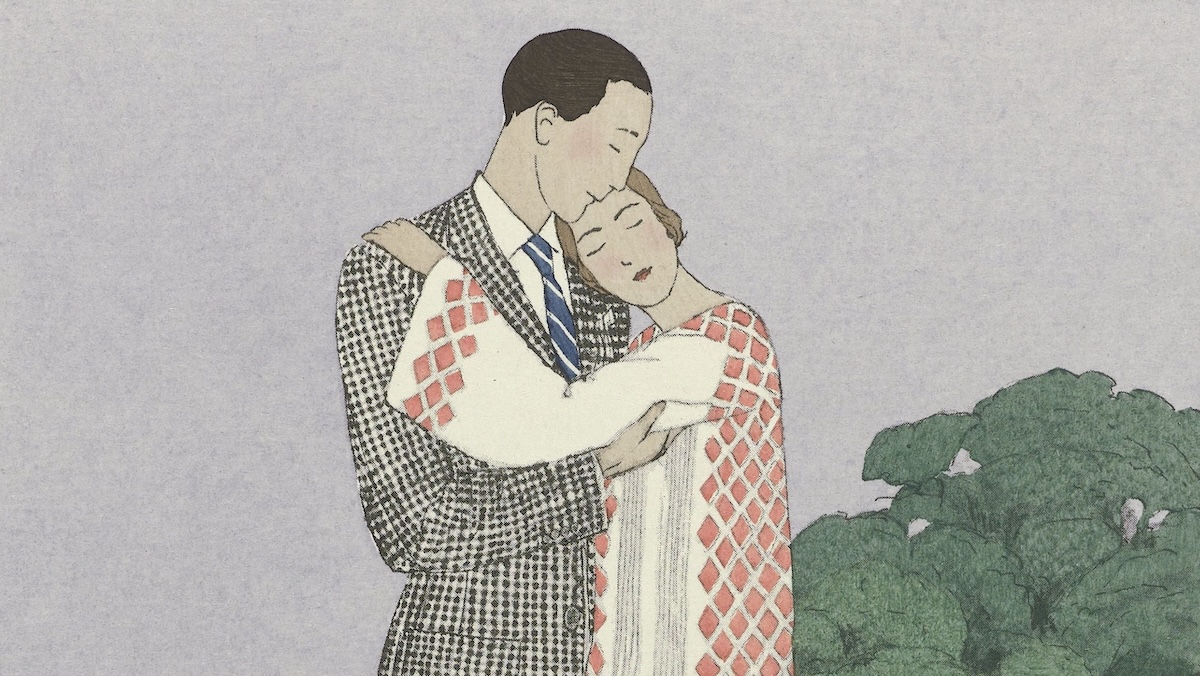Once upon a time, not so very long ago, a young man met a young woman at a party. He noticed her laugh first. Drawn to the sparkle in her eye, he was attracted to her as a person, not merely as a number on a ten-point scale. He made a joke that didn’t quite land, but she laughed anyway. He stammered. She smiled. They danced. The room fell away as they became entranced with each other.
This is how romance used to begin: with awkwardness, charm, and shared space.
Today, that same couple might first encounter each other through a dating app or social media inbox, interacting through carefully curated photos, a brief bio, and a swipe. They trade messages like overworked customer service agents: polite, efficient, and scripted. Often, the connection flickers out before it even truly begins.
Yet I pause here, because I met my husband online. Technology, algorithms, and optimization served the two of us beautifully, but only after we’d both spent years fumbling, failing, and growing in real-life interactions. The magic wasn’t in the matching algorithm alone. It was in the human messiness and experience we brought to it.
When we say, “That’s just the modern world,” we must admit we’re risking something essential not just to romance but to civilization itself. The relationship between men and women isn’t just fraying; it’s unraveling. What pulls the threads loose isn’t technology itself but our temptation to let screens replace the struggle, awkwardness, and charm of genuine human connection. Men and women used to meet in person: at school, church, or through friends. Those encounters weren’t always smooth or entirely safe, but they were undeniably human.
Today, young people are raised indoors, experimenting mostly in increasingly strange online spaces. Comedian Andrew Sleighter captures this perfectly: “When’s the last time you saw a kid with a cast on? Remember? There used to be kids with casts everywhere. I used to walk into third grade, and it was like a VA hospital. Leg up in the air, a kid with an eye patch… Whoa, what happened to you? Now, the injuries are psychological. They get those online. That’s not as fun. No one can autograph your crippling anxiety.”
Treating safety as the core directive of life keeps more people alive than ever before, but it stunts our growth. We’re not pushing young people to become more fully human. We’re creating climate-controlled, self-watering bonsai trees in the shape of adults, but much, much interpersonally smaller.
Attributes left unused will inevitably atrophy. This extends to social skills and the people who need to develop them most: young men. Socialization among males, including roughhousing, teasing, and in-person verbal sparring, used to teach boys how to tolerate awkwardness, risk embarrassment, and grow from uncomfortable experiences. It helped them find their niche, whether through competence, humor, or strength. It gave them the muscles for social life. Socializing with girls also has a lot to teach young men—about sexual difference, sure, but also about our common humanity. Exposure therapy is still a very underrated teaching method. It works with spiders, and it works with your neighbor Jessica.
Online spaces offer comforting fantasies. In digital worlds, you rise through ranks, rule empires, and become a god, but at the cost of missing the quieter, more challenging work of becoming a man. Meanwhile, in a post #MeToo world, the rules of real-world engagement with the opposite sex have multiplied: Don’t be creepy. Don’t be intense. Don’t ask twice. These are reasonable guidelines, grounded in genuine concerns, but when layered with fear and the looming threat of online ostracism, they become paralyzing. A generation of men becomes too anxious to try. A generation of women becomes too tired to teach. Instead, they retreat into the familiar, non-threatening spaces of their curated online communities.
The issue isn’t only avoidance; it’s also the selected realities we’re shown. Technology doesn’t just connect us. It curates us. It reflects a distorted funhouse version of humanity, and especially of the opposite sex. Our beliefs are influenced by social media feeds filled with stereotypes: “Men are emotionally unavailable.” “Women only care about money.” There are countless podcasts on hypergamy and Reddit threads on the iron prison of inceldom. There are endless ways to pre-judge and fear each other before even opening the door to real interaction. Our innate negativity bias reinforces these caricatures, convincing us the outside world is dangerous and filled with traps and snares we’re unequipped to handle.
We stop seeing each other as complements, collaborators in the project of life, and individuals. Instead, men and women become threats, statistics, or liabilities to manage through scientifically accurate “life hacks” or harebrained techniques created by influencers. Differences are viewed as defects. She’s emotional, so she’s irrational. He’s quiet, so he must be dangerous. We benchmark the opposite sex against our own internal template for normality, and anything different becomes defective. Women need to be disenfranchised. Men need therapy to unlearn their toxic masculinity.
I once believed that widespread awareness of sex differences would strengthen the bonds between men and women, creating a richer language of understanding. In my dream, the alien other would feel like the enchanting, luminous creature from the movie Avatar: a mysterious, beautiful entity worth crossing worlds for. But somewhere along the way, that image morphed. Now, the opposite sex is often seen more like the blood-sucking invaders from War of the Worlds: dangerous, manipulative, out to conquer or consume.
Dating has evolved from something with market characteristics to something closer to the New York Stock Exchange. We assess value, optimize, and calculate ROI. Even earnest seekers approach love as résumé screening: hot enough, tall enough, fertile enough, wealthy enough?
Yet the truly meaningful qualities evade data collection. How someone makes you feel. The warmth they bring to a room. Their kindness to strangers. The smell of their t-shirt that you’d happily sleep in forever. It’s hard to flatten and codify magic. But that’s what is missing from the database. The truth is, love isn’t about fulfilling checklist criteria. It’s about transformation through connection. Yet modern tools treat relationships as performance reviews. One wrong answer, and you’re out. No grace, no growth, no mercy. So we stay alone. Not because we want solitude, but because the tools and nudges push us to avoid risk.
Love is a risk. But it’s also the greatest reward.
Technology itself isn’t the enemy. In fact, it’s miraculous. Besides my fortuitous match and our wonderful resulting children, by the grace of technology, I’m currently patching up my knowledge of statistics—through an AI—better than any professor I’ve ever had. Technology connects moms to postpartum resources. It helps single dads find support. It saves countless lives. And yes, it entertains better than anything ever created. The problem is that it’s so good, so frictionless, that it tempts us to avoid life’s awkward ambiguities: sitting across someone who might not understand your joke, asking uncertain questions, fumbling conversations, and trying again. These interactions shape our humanity. We aren’t merely individuals; we’re part of a relational superorganism. Connection isn’t another convenient consumer product, it’s our human birthright and obligation.
Fortunately, we’re not stuck. We can reclaim the dance. It may be that, in the peaks and troughs of creative destruction, we are just now in a valley. The next hill is not visible yet, but history teaches us that it is coming. There may be tensions, struggles, and unexpected pitfalls ahead, but the destination is there. The mission is as alive and energizing as it’s always been.
Men and women aren’t enemies or algorithms to be hacked. We are partners in the oldest, most miraculous human project: love, family, and civilization itself. We don’t need new apps; we need old courage, agency, and faith to help young people navigate life’s complexities together.
Love isn’t transactional. It’s transformational, and it begins when two people lift their heads just a little above the screen, look each other in the eyes, and say, “Hi.”
This piece was originally delivered as a speech at the Family Formation and the Future conference at the Danube Institute in Budapest, Hungary on April 2, 2025.



